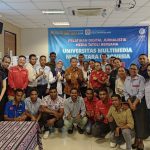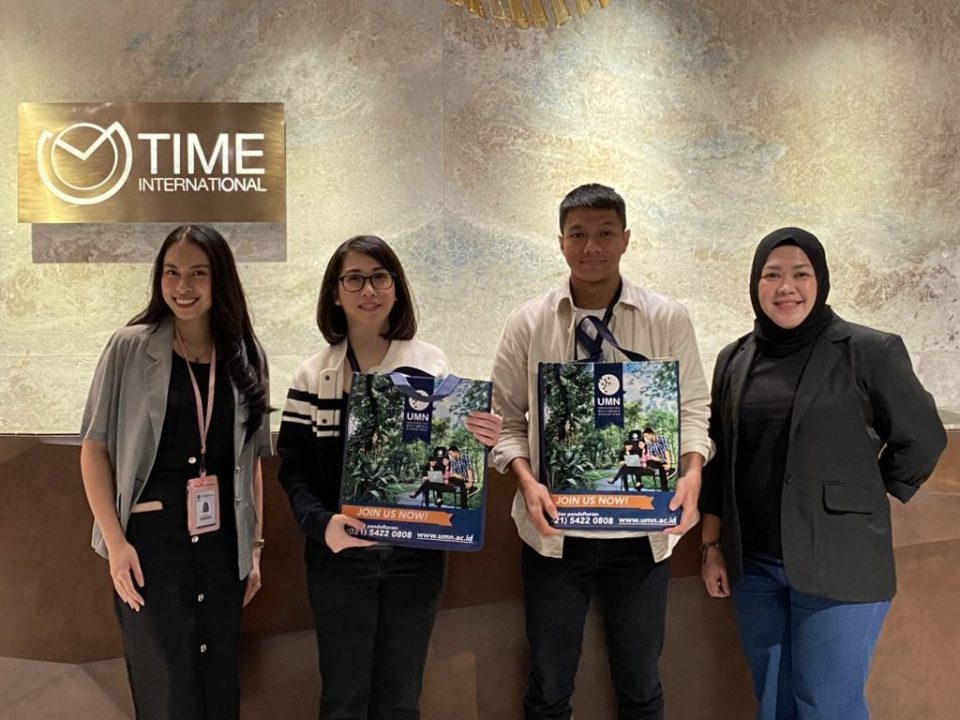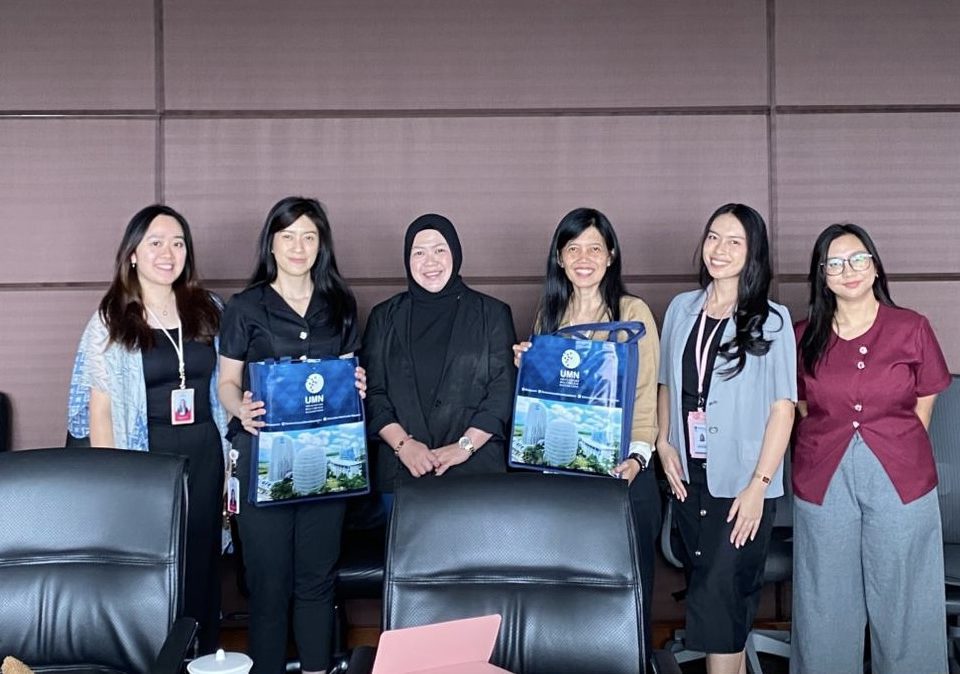
UMN Partners with Yamato Indonesia to Increase Graduate Absorption
July 21, 2025
UMN Provides Digital Journalism Training for Timor-Leste Journalists
July 23, 2025
Two teams of UMN students won the Data Analysis Article Competition: Journalist Safety Index 2024. (Doc. Screenshot from Instagram @populix.co)
TANGERANG – Rheinata Yuvian Tasman, a student from the Journalism Program at Universitas Multimedia Nusantara (UMN), won first place in the Data Analysis Article Competition: Journalist Safety Index 2024 – a national competition organized by Populix and Tifa Foundation. The competition aims to encourage students and academics to address issues related to journalist safety based on data analysis.
In just one week, Rheinata wrote an article titled “Female Journalists: Always Under Surveillance, Never Protected.” The piece was born from a combination of academic research, gender issue advocacy, and personal concern for the conditions of female journalists in Indonesia.
“The initial idea to address the issue of female journalists came from a public lecture with Prof. Angela Romano from Queensland University of Technology on the security risks faced by journalists in Indonesia, in collaboration with the Journalism program. At the time, I was in the process of searching for a seminar proposal topic, which later evolved into my current thesis. That public lecture sparked my curiosity about the security landscape for female journalists in Indonesia,” Rheinata explained.
Rheinata’s article is not merely an opinion piece or a routine report. She builds her narrative from the real-life experiences of two female journalists from Tempo, Lani Diana and Fransisca Christy, who were victims of violence while on duty. Data from the 2024 Indonesian Journalist Safety Index and other credible sources further supported these field findings.
One of the most troubling aspects for her is the fact that only female journalists report sexual harassment. “This shows that women’s bodies and identities will always be used as tools of intimidation by certain individuals. They are not attacked solely because of their identity as journalists, but also because they are women and perceived as ‘weaker,’” she emphasized.
Despite writing under intense pressure—chasing competition deadlines, completing an internship, and finishing her thesis—Rheinata remained committed to the integrity of her content and the accuracy of her data. She actively discussed her work with her academic advisor and drew on the Data-Driven Storytelling course material, which equipped her with the skills to read, clean, and narrate data.
The article not only received the highest praise from the judging panel but was also published on Kompasiana (https://www.kompasiana.com/rhei/6831fa6334777c1c4c12d113/jurnalis-perempuan-selalu-diawasi-tak-pernah-dilindungi) and became an important reflection in discussions about the safety of female journalists.
Not only Rheinata, but another team from UMN, consisting of Tiara Dara Clarisa and Savira Angel Fakhlevi, also secured second place in the same competition with their article titled “The Culture of Self-Censorship: Digital Violence as a Weapon to Silence Critical Journalists.”
The winners were announced on July 1, 2025, through the official social media accounts of Populix and Tifa Foundation. The evaluation was conducted rigorously and covered the quality of analysis, depth of interpretation, writing structure, originality, and data visualization.
Rheinata expressed her happiness and pride over her achievement. “Although there were no expectations from the start, there was effort put into it. So, there was definitely the thought, ‘If I win, that’d be great.’ Turns out, being announced as the first-place winner was absolutely amazing.”
More than just a competition, Rheinata hopes this article serves as a reminder that journalists’ safety—especially women journalists—needs more tangible protection and regulations prioritizing their well-being.
“During this transitional period of government, journalists are caught in the middle. They happen to be facing authorities that are unfriendly toward the press and cannot tolerate social criticism, so this profession, which shouldn’t be this dangerous, has become full of risks. Hopefully, in the future, authorities will be more aware of press freedom in this country. It’s a naive hope, but actually, from the media institutions’ perspective, journalists’ safety is already being adequately safeguarded,” she said.
Rheinata also hopes that female journalists will be increasingly considered and involved in every process related to journalist safety. From decision-making, formulating regulations prioritizing gender perspectives, to the implementation stage. She also expressed her hope that in the future, there will be a recovery of press freedom conditions in Indonesia.
By Melinda Chang | UMN News Service
English translation by Levina Chrestella Theodora
Kuliah di Jakarta untuk jurusan program studi Informatika| Sistem Informasi | Teknik Komputer | Teknik Elektro | Teknik Fisika | Akuntansi | Manajemen| Komunikasi Strategis | Jurnalistik | Desain Komunikasi Visual | Film dan Animasi | Arsitektur | D3 Perhotelan , di Universitas Multimedia Nusantara.





